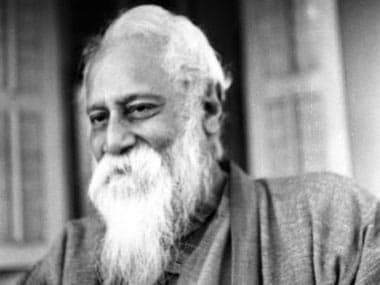Rabindranath Tagore, the first Asian to win Nobel Prize, was born on 7 May 1861 in Kolkata. This year marks the 159th birth anniversary of Tagore. Every year, his birth anniversary is observed as Rabindra Jayanti across the country. [caption id=“attachment_2226482” align=“alignleft” width=“380”]  Rabindranath Tagore. AFP Image.[/caption] The birth anniversary of the Nobel laureate is widely celebrated by the Bengali community on Pachishe (25th) Baishakh. Tagore used to pen poetry, songs, stories, and dramas. Tagore’s writings also include portrayals of lives of common people, literary criticism, philosophy and social issues. Most of his writings were in Bengali, later translated to English to make them accessible to a broader audience in the West. Rabindranath Tagore is also known as Kabiguru, Gurudev and Biswakabi. Here are some interesting facts about Kabiguru Rabindranath Tagore
- Rabindranath Tagore won the Nobel Prize for Literature in 1913 and is the only Indian to have received the honour in the category. He received the prestigious award for his collections of poems titled Gitanjali.
According to a statement by Nobel committee, Tagore was recognised for the prestigious prize “because of his profoundly sensitive, fresh and beautiful verse, by which, with consummate skill, he has made his poetic thought, expressed in his own English words, a part of the literature of the West.”
To challenge the conventional methods of classroom education, Tagore founded Visva-Bharati University in Santiniketan, West Bengal. Many classes in the university are still conducted under trees in open fields. Visva Bharati University was declared a central university in May 1951.
A bronze statue of Rabindranath Tagore was unveiled in Gordon Square, London on his 150th birth anniversary in 2011. The statue was unveiled by Prince Charles who said the inscriptions will “shine out as a beacon of tolerance”.
Tagore shared a good bond with Albert Einstein. Both Nobel laureates met a number of times and had a common interest in music. After his maiden meeting with Einstein, Tagore wrote, “There was nothing stiff about him - there was no intellectual aloofness. He seemed to be a man who valued human relationship and he showed me a real interest and understanding.”
Rabindranath Tagore was awarded a knighthood in 1915, but he renounced it on 31 May 1919 as a protest against the Jallianwalla Bagh Massacre in Amritsar.
In his letter to Lord Chelmsford, Tagore wrote, “The time has come when badges of honour make our shame glaring in the incongruous context of humiliation, and I for my part wish to stand, shorn of all special distinctions, by the side of those of my countrymen, who, for their so-called insignificance, are liable to suffer degradation not fit for human beings.


)

)
)
)
)
)
)
)
)



